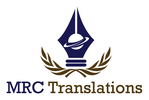|
What is Localization?
Globalization—the interdependence of the world’s economies and cultures—has had an incredible influence on our society. Although cultural elements from elsewhere in the world are more accessible than ever before, each country continues to have its own unique cultural identity. That’s where localization comes in. Localization consists of basic modifications—like providing numbers, dates, and times in the preferred local format—but it also encompasses more subtle and complex issues. For example, what seems like a simple statement of fact can be misinterpreted or even considered offensive because of cultural differences. Localization aims to address those differences by adapting content for the target language and culture, which is key to successfully promoting products or services in a foreign market. Localization vs. Transcreation When it comes to marketing, we often use the term “transcreation” to refer to the process of adapting content to the local culture in order to meet its needs and maximize your chances of success when launching your international marketing campaign. The Dangers of Poor Localization So what happens when these challenges are neglected? It can lead to embarrassing and costly mistakes. Let’s take a look at some examples. Clairol's “Mist Stick” curling iron didn’t sell as well in Germany as the company hoped. Why? Because while “mist” in English means “small drops of water,” in German, it means “manure.” Rolls-Royce successfully avoided falling into the same trap. In the 1960s, the company planned to release a vehicle called the Silver Mist. Fortunately, its team realized the potentially disastrous association in Germany, and chose to call it the Silver Shadow. Similarly, if Ford had released the Pinto in Brazil without changing its name, it would have caused some serious trouble. That’s because “pinto” means “dick” in Brazilian Portuguese. Fortunately, this never happened, despite what some websites may say. This article examines the controversy. In 1988, the General Electric Company (GEC) and Plessey merged their telecom businesses and chose to call it GPT, short for GEC Plessey Telecommunications. However, in French, GPT is pronounced as “J’ai pété,” meaning “I farted.” Naturally, that ruined any chances of creating a single brand throughout Europe. In France, the brand had to be changed to GPTel. Orange, a mobile network operator in the UK, used the slogan “The future is bright. The future is Orange.” However, in Northern Ireland, orange is associated with the Orange Order, a Protestant organization. The predominantly Catholic population interpreted it as “the future is Protestant,” which led to a lot of criticism. Ultimately, the company had to change their campaign in Northern Ireland. How to Avoid a Localization Fiasco As you have seen, advertising a product or service in a foreign country without consulting people who are fluent in the language and really know the local culture can lead to costly mistakes. Fortunately, those missteps can be easily avoided by working with a reliable translation partner who’s an expert in marketing and business. I’ve worked with global brands like LG, Samsung, and others for several years to help them in their marketing efforts, and I’d be pleased to assist you in your global marketing campaign. For more information, please feel free to contact me.
0 Comments
Your comment will be posted after it is approved.
Leave a Reply. |
Details
Matheus R. ChaudI am a Certified English to Portuguese Translator with extensive experience in translation, proofreading, editing, subtitling, and quality assurance. Archives
March 2024
Categories |


 RSS Feed
RSS Feed



